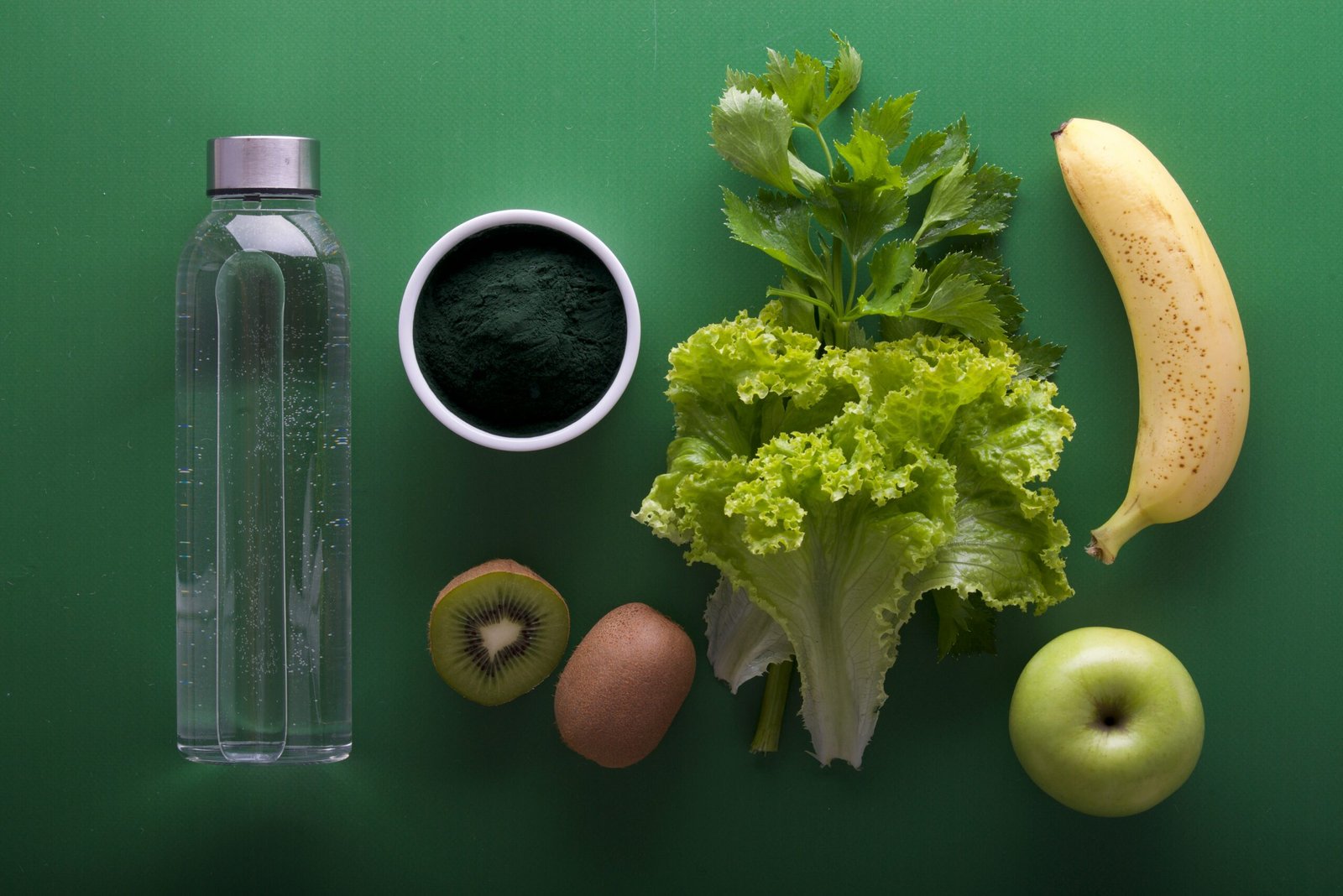Unveiling the Hottest Health Trend in Belarus: The Sunflower Seed Diet
Introduction to the Sunflower Seed Diet
The sunflower seed diet is a unique health trend that has recently gained significant traction in Belarus. Originating from the traditional use of sunflower seeds in Eastern European cuisine, this diet emphasizes the nutrient-rich profile of sunflower seeds as a primary food source. As Belarusians increasingly seek natural and wholesome dietary options, the sunflower seed diet has emerged as an attractive alternative that aligns well with contemporary nutritional recommendations.
Sunflower seeds are celebrated for their myriad health benefits, making them an ideal candidate for a focused dietary regimen. These seeds are packed with essential nutrients including vitamin E, healthy fats, and minerals such as magnesium and selenium. Given the rising popularity of plant-based diets, incorporating sunflower seeds can enhance nutrient intake while supporting overall well-being.
The sunflower seed diet is particularly appealing to those looking to manage weight, improve heart health, and enhance skin vitality. The high fiber content found in sunflower seeds aids in digestion and helps individuals feel satiated, which is especially beneficial for weight management. Additionally, the healthy fats present in these seeds can contribute to better cardiovascular health, a growing concern among the population.
Another factor contributing to the appeal of the sunflower seed diet is its versatility. Sunflower seeds can be consumed in various forms, whether raw, roasted, or incorporated into smoothies and salads. This allows individuals to mix and match their meals while enjoying the nutritional advantages these seeds offer. As more people in Belarus look for creative and healthful dietary options, the sunflower seed diet stands out as both a nutritious and practical choice.
Nutritional Breakdown: Why Sunflower Seeds Are Beneficial
Sunflower seeds, often regarded as a nutritious snack, boast a stunning array of vitamins, minerals, healthy fats, and antioxidants that contribute significantly to overall health and wellness. Rich in essential nutrients, these seeds provide the body with a host of benefits, making them an excellent choice for those seeking to enhance their diet. Among the key nutritional components of sunflower seeds is vitamin E, a powerful antioxidant that plays a vital role in protecting cells from oxidative stress, ultimately supporting immune function and skin health.
In addition to vitamin E, sunflower seeds are an excellent source of B vitamins, particularly folate, which is essential for DNA synthesis and cell division. These seeds also contain significant amounts of magnesium, copper, and phosphorus, minerals that are crucial for bone health and energy production. Moreover, sunflower seeds are high in healthy fats, primarily polyunsaturated and monounsaturated fats, which are known to improve heart health by lowering cholesterol levels and reducing the risk of cardiovascular diseases.
Another notable feature of sunflower seeds is their high fiber content. Dietary fiber is essential for digestive health, as it promotes regular bowel movements and supports a healthy gut microbiome. Furthermore, fiber helps to maintain steady blood sugar levels, making sunflower seeds a smart option for individuals managing diabetes or those simply looking to control their appetite.
Antioxidants found in sunflower seeds, such as chlorogenic acid and quinic acid, contribute further to their health-promoting properties. These compounds can help reduce inflammation and proliferate overall wellness. The sunflower seed diet, popular in Belarus, highlights the significance of incorporating these seeds into daily meals as a plant-based source of nutrition that satisfies and nourishes. Overall, the nutritional benefits of sunflower seeds make them a noteworthy addition to any healthy eating plan.
How to Incorporate Sunflower Seeds into Your Diet
Integrating sunflower seeds into your daily diet can be both simple and rewarding. Their nutty flavor and satisfying crunch make them a versatile ingredient suitable for various meals and snacks. Here are some practical tips to incorporate sunflower seeds into your diet effectively.
One of the easiest ways to enjoy sunflower seeds is as a snack. They can be consumed raw, roasted, or spiced, making them a perfect on-the-go option. Consider purchasing ready-to-eat sunflower seeds or roasting them at home and adding spices like paprika or garlic powder for a tasty twist. Portion control is important, so be mindful of serving sizes.
For breakfast, sprinkle sunflower seeds onto your cereal or yogurt. This not only adds texture but also enhances the nutritional profile of your meal with healthy fats, protein, and fiber. For a special treat, blend sunflower seeds into smoothies for a creamy consistency, creating a nutrient-dense start to your day.
When it comes to lunch, sunflower seeds can be a great addition to salads. Their crunch beautifully complements leafy greens and serves as a delightful topping for dressings. Try to experiment by creating a sunflower seed dressing by blending sunflower seeds with olive oil, garlic, lemon juice, and herbs for a homemade touch.
For dinner, you can incorporate sunflower seeds into your favorite dishes. Chop them finely and add them to stir-fries, casseroles, or grain bowls, providing a delightful yet healthful crunch. They can also be used in baked goods, such as muffins or bread, enhancing both flavor and texture.
Lastly, consider using sunflower seeds as a garnish for soups and stews. Their unique flavor can elevate the dish and offer added nutrition. As the sunflower seed diet trend gains traction in Belarus, these incorporation methods make it easier for anyone to adopt this wholesome practice.
Potential Risks and Considerations
While the sunflower seed diet has garnered attention for its potential health benefits, it is essential to address some potential risks and considerations associated with its consumption. Overindulgence in sunflower seeds can lead to excessive calorie intake, as they are energy-dense due to their high fat content. Therefore, portion control becomes crucial. A recommended serving size is typically about a quarter of a cup, which provides significant nutritional benefits while helping to maintain a balanced diet.
Allergies should also be considered before incorporating sunflower seeds into one’s diet. Sunflower seed allergies, though not as prevalent as other nut allergies, can occur in susceptible individuals. Symptoms may include skin reactions, respiratory issues, or gastrointestinal discomfort. Those with a known allergy must avoid sunflower seeds entirely and seek alternatives to meet their dietary needs.
Additionally, while the sunflower seed diet emphasizes the positive attributes of these seeds, it is vital to remember that no single food should dominate one’s diet. A balanced approach, incorporating various food groups, is imperative for overall health. Relying exclusively on sunflower seeds may lead to nutrient deficiencies as they do not provide all the essential vitamins and minerals. A diverse diet ensures the body receives an adequate supply of the nutrients necessary for optimal functioning.
Finally, hydration is often overlooked when discussing diets. Consuming sunflower seeds can lead to dehydration due to their sodium content, especially if salted varieties are chosen. Staying adequately hydrated can enhance the benefits of sunflower seeds as part of a health-conscious diet. By taking these considerations into account, individuals can safely enjoy the sunflower seed diet while mitigating potential risks.









